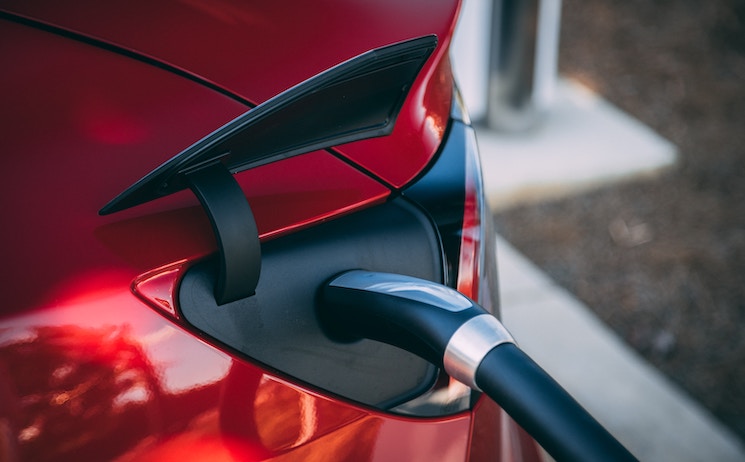Greetings, Agents of Impact!
Featured: ImpactAlpha Original
Speeding down the road to electric vehicles, powered by China. China dominates the market for EVs. Roughly a million electric vehicles were sold in the country last year—more than the rest of the world combined. Last week, the government upped its goal for “new energy vehicles” to 25% of new car sales by 2025. Clean-powered vehicles are a pillar of China’s “Made in China 2025” plans to dominate strategic industries. The government has aggressively nudged the market with incentives and subsidies, spurring the launch of nearly 500 domestic EV startups. Sales have slowed as the government pulls back from the aggressive early incentives. But by focusing on building out supportive infrastructure, like a nationwide network of chargers, the country is gearing up for a broader mobility transformation. “When economics, regulation, infrastructure, corporate interest and consumer appetite are aligned, change can happen quickly,” says Impax Asset Management’s Jon Forster.
Now, government policy is pulling in foreign investment as well. BMW Group, Volkswagen and Renault have recently announced investments and joint ventures to produce EVs in China. And Tesla’s first Model 3s are ready to roll off the production line of its “gigafactory” in Shanghai. “They’re forcing the automakers to make big bets in China,” Tu Le of Sino Auto Insights in Beijing tells ImpactAlpha. For automakers, “The question is not if we need to manufacture EVs,” he says. “It’s when we should move everything over and how long that process should take.” Globally, transportation accounts for roughly one-quarter of greenhouse gas emissions and is the fastest growing source of such emissions. EVs are key to reaching net-zero carbon emissions by 2050, as called for in the Paris climate agreement, but only if the electricity powering the vehicles is itself clean. As with EVs, China is building more coal-fired electricity generation than the rest of the world combined.
Keep reading “Speeding down the road to electric vehicles, powered by China,” by Amy Cortese and Jenna Tsui on ImpactAlpha.
Dealflow: Follow the Money
Spring Lane Capital closes $156.5 million to fund sustainable facilities. Traditional project finance for waste or energy infrastructure isn’t well-designed for projects delivering highly localized services. Spring Lane Capital invests in companies developing sustainable energy, water and waste services that can’t secure traditional project financing. It raised $156.5 million to make equity investments in revenue-earning companies and provide project financing for the facilities they need. The fund attracted institutional investors and family offices in North America and Europe, including BDC Capital, Fondaction, Fonds de solidarité FTQ and Palomino Capital Corporation.
- Investment approach. Spring Lane invests $15 to $30 million in “project pools” that own portfolio companies’ facilities, equipment or other physical assets, that pay off through earned revenues. The firm also kicks in an additional 10% to 20% as growth equity to the company itself.
- First investments. Spring Lane’s three investments from the fund include a $21.4 million investment in Atlas Organics, which helps municipalities divert organic waste from landfills; a $65 million investment in Aries Clean Energy, which is building a “biosolids” processing facility in New Jersey; and an $18 million investment in Cambrian Innovation, which provides localized wastewater management and clean energy services.
- Read on.
The Renewal Workshop raises €5 million to help fashion brands go circular. Startups are helping minimize fashion’s environmental footprint with waterless dyes, online thrift stores, and clothes made of recycled materials. Oregon-based Renewal Workshop is bringing these ideas to clothing manufacturers like The North Face and H&M. Renewal Workshop helps renew existing products, analyzes companies’ operations, and offers a “circular map” for how to implement more eco-friendly practices. It also sells “renewed” products from partners on its website. The company aims to reduce textile waste in landfills by a million pounds by 2025 (and reports it has saved 78,000 pounds so far). Social Impact Ventures, SHIFT Invest, Quadia, Closed Loop Ventures and Gratitude Railroad invested €5 million ($5.6 million) in the company. Check it out.
FoodMaven closes $15.3 million to fight food waste. The Denver-based company links producers to buyers of imperfect produce to cut back on the more than one-third of U.S. food production that goes unused. The company completed its Series B after raising $10 million earlier this year.
Kendeda Fund backs Atlanta-based community impact fund. Kendeda Fund committed $500,000 to co-invest alongside the Community Foundation for Greater Atlanta’s $10 million impact fund, GoATL. Kendeda’s commitment is part of $1.4 million in co-investment capital GoATL secured for local nonprofits and social enterprises.
Signals: Ahead of the Curve
Exxon escapes fraud charge, but not climate risks. A New York judge found ExxonMobil not guilty of deceiving investors about how it accounted for the cost of future climate-change regulations. The oil and gas giant escaped charges of securities fraud, but it may be harder to shake off the declining value of its massive fossil fuels business. Chevron on Tuesday wrote down the value of oil and gas assets in Appalachia, the Gulf of Mexico and Canada by $10 billion, one of the largest energy write-downs in years. Last week brought a $5 billion write-down from Spain’s Repsol. The signal: Expect more write-downs as the market wakes up to the risk of “stranded assets” (see, “Agent of Impact: Mark Campanale, Carbon Tracker Initiative”).
- Climate shocks. The re-pricing of climate risks extends beyond energy companies, especially as the near-term policy response to climate change is priced in. “Markets are mispricing the potential for an abrupt and disruptive shift in climate policy,” says Grantham Research Institute’s Nick Robins (see, “Risk, adjusted: BlackRock and Mercer signal the repricing of climate risk”). The 100 worst-performing companies in the iShares’ MSCI All Country World Index, for example, could lose 43% of their current value, according to Inevitable Policy Response, an initiative led by UN-PRI. The 100 best performers could gain gain 33%.
- Fewer excuses. Italian multinational energy corporation Enel plans to be carbon-neutral “well before 2050” and is investing heavily to consolidate its position in renewable generation. “The technology solutions needed for decarbonization are largely available, abatement costs are falling, and barriers to action are often overstated,” said Patrick Herhold of Boston Consulting Group, which released “Net-Zero Challenge” with the World Economic Forum. Examples of proactive climate action are in the minority, according to the report. More than half of nearly 300 energy companies fail even to disclose carbon emissions.
- Share this post.
Agents of Impact: Follow the Talent
Hop on today’s 1pm ET Transform Finance webinar, “Using private capital for social change and the dangers of privatization“… On Thursday, Impact Entrepreneur is hosting “Seeking Authenticity in Impact Investing: A Year in Review,” a webinar with Blended Value’s Jed Emerson, Common Future’s Rodney Foxworth and Impact Finance Center’s Stephanie Gripne… Closed Loop Partners is looking for a senior project director in New York… Ecosystem Integrity Fund seeks an investor relations manager in Seattle.
Thank you for reading.
– Dec. 11, 2019











